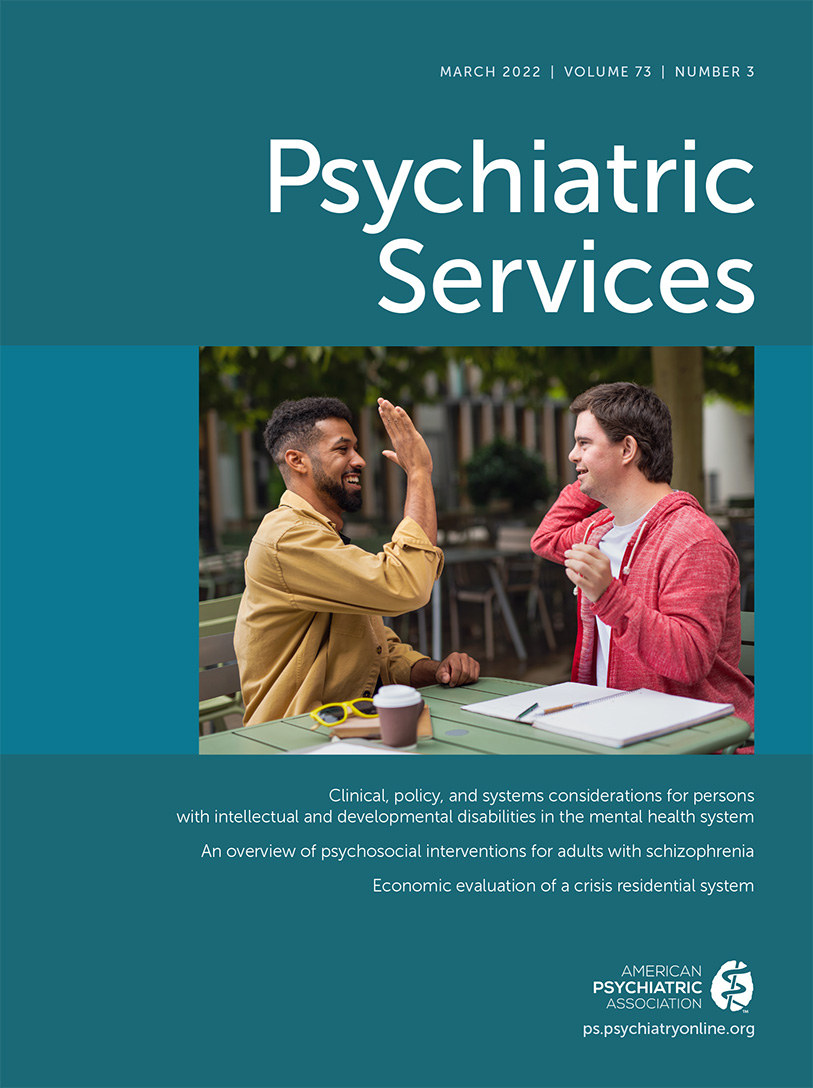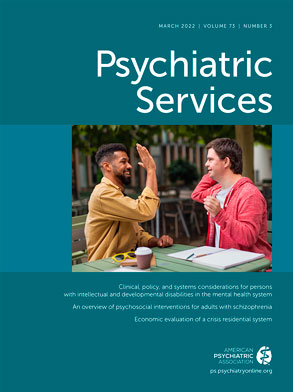Intellectual and developmental disabilities (IDD) encompass various neurodevelopmental conditions that arise in early childhood, including intellectual developmental disorder and attention-deficit hyperactivity disorder. Children with IDD experience mild to severe difficulties in essential life skills related to academic performance, self-care, and social communication and relationships, which may disadvantage them in later life compared with adults without IDD. Common difficulties include challenges in language processing, executive functioning, and memory; difficulties in instrumental activities of daily living; and difficulties in understanding and responding to social cues, following rules, and understanding risks and consequences. With these behavioral, conceptual, and social difficulties, individuals with IDD more often have comorbid mental health conditions such as affective, anxiety, psychotic, and impulse control disorders compared with the general population.
In two special articles, Pinals et al. (
1,
2) bring to readers’ attention years of neglect, structural discrimination, and maltreatment of individuals with IDD. Stigma and ignorance about IDD among caregivers, clinicians, and policy makers create broken systems and policies within and beyond psychiatric services, encompassing the entire continuum of care. Here I focus on critical early points of failure that reside mainly in primary schools and general pediatrics, as well as in mental health services, and discuss the importance of early and accurate diagnosis and nonpharmacologic interventions to promote mental health and community inclusion of individuals with IDD.
IDD requires early diagnosis and intervention. Appropriate and timely frontline response can improve immediate and long-term outcomes for children with IDD, such as academic performance, community inclusion, and integration with peers, and promote mental health by addressing early signs of anxiety and depression. For example, school-age children with IDD often initiate social interactions or express frustration in ways that can be seen as socially unacceptable, such as bullying behaviors and other conduct problems, impulsivity, and self-injury. An appropriate response could take the form of crafting an individualized educational program or, via primary care or general pediatrics, providing direct care, referral and access to services, support, and education for children and their families.
School personnel and general pediatricians, often the first frontline responders to children with IDD, lack sufficient knowledge and training to adequately identify and treat them and may fear liability and legal exposure. Lack of clinical and policy knowledge about IDD and lack of training are common among first responders, resulting in misdiagnosis and mistreatment that are associated with an exacerbation of dysfunction and disability, higher rates of psychiatric comorbid conditions, conduct problems, and overrepresentation in justice and forensic settings. Lack of IDD knowledge among first responders can also explain why, according to Pinals et al. (
1,
2), most individuals with IDD are disproportionately treated via mental health services and systems.
Even within mental health services and systems, individuals with IDD often encounter mental health professionals with low IDD literacy who receive little training about the needs of this population and relevant options for treatment and support. As a result, individuals with IDD are often misdiagnosed and prescribed as the first-line treatment psychiatric medications, such as antipsychotics, antidepressants, and mood stabilizers, that are used off-label, not for the approved indication. Nonpharmacologic therapeutic supports in IDD—such as social prescribing, behavioral and educational interventions, or psychotherapy—which should ideally occur prior to pharmacological intervention, are underused.
To promote mental health among individuals with IDD, greater emphasis should be given to early and accurate diagnosis and nonpharmacologic interventions. To improve early diagnosis, specialized training programs and interventions for daily use by first responders who often lack the clinical knowledge, training, or sufficient time are needed. To improve the offering of nonpharmacologic treatment, training and education should be further developed and implemented in schools, pediatric care, and mental health and psychiatric services. As suggested by Pinals et al. (
1,
2), workforce development initiatives for mental health professionals are needed, such as training enhancements and development of “direct service professionals” who specialize in providing behavioral, communicational, and functional support. Underresourced mental health services; improper policies; poorly trained caregivers; socioeconomic, cultural, and racial differences; and the reduction of in-person social interactions due to the COVID-19 pandemic may all lead to an unprecedented wave of undiagnosed and mistreated individuals with IDD. This is an urgent wake-up call.

